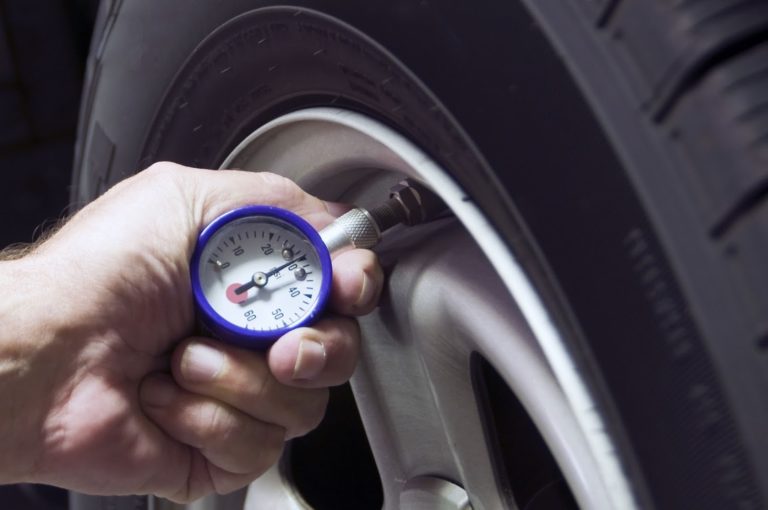We are open and ready to help you! Plus, financing is available. Schedule an appointment today or walk-ins are also welcome! We are here for all your automotive needs.
If you take the time to inflate your tires properly, you’ll avoid needless frustration and expense. Your tires are more than just another automotive part. They are a safety feature and an absolute necessity for getting around. Develop the habit of checking the air pressure at every fuel stop to avoid common problems and reap the benefits listed below.
Stop Wasting Money
If you keep your tires properly inflated, you’ll save money. Low tire pressure causes the tires to wear out faster. New tires are a significant expense that includes not only the cost of the tire but the mount and balance fee as well. Additionally, proper tire inflation increases fuel efficiency.
On the other hand, over inflation can wear out your tires faster. The material stretches further than recommended and makes the tire less flexible as it rolls over bumps and dips. This rigidity can damage the tire, and creates a much bumpier, more uncomfortable ride for your passengers.
Prevent Driving Hazards
Tires with too much air do not contact the road as completely as they should. When this happens, the tire can’t provide the traction necessary to keep the vehicle under control in some situations. Rainy roadways, dirt or gravel roads, and other unstable surfaces become even more dangerous.
You may have heard that you should underinflate your tires when driving up to the mountains in snow conditions, however, this is false. Underinflation may increase the amount of contact your tires have with the road, but if you hit a bare patch of road, this could slow the steering response.
Reduce Service Calls
Many modern vehicles come equipped with a tire pressure sensor. However, many of these sensors are too sensitive, which leads to false alarms. If you’re tempted to ignore the warning signal, don’t give in. Always pull over and check the air pressure at the first safe opportunity. Frequent alarms are signals of a problem with the tire and in this case you should bring your car in for a tire check at your local Evans Tire.
Consider this to be a serious safety issue because a slow leak, whether it’s caused by a nail in the tire, worn-out treads, or a bent rim, could lead to a flat while on the road. Quickly inspect the tire for visible damage or low treads, and check the pressure. This will help you avoid an unexpected tire blowout.
Learn Proper Inflation
Trying to silence a sensor by randomly adding air to each tire is not a good solution. Instead, make sure you know how much pressure each tire needs. You can usually find this information easily for your car and the tires you select.
A tire pressure gauge is a small tool that is easy to store. Keep one in every vehicle so it is always available. If your gauge tells you that you need to add more air, don’t put it off. Go to the nearest gas station that has an air pump, and take care of the problem right away.
Take It Seriously
Tire safety is not a small concern. Crashes happen every year because the driver lost control due to underinflated tires, lack of tread on the tire, or a blown tire while driving. Drivers can prevent accidents by including a few minutes of additional vehicle maintenance or bringing it in to be checked by a tire expert.
At Evans Tire & Service Centers, we understand the necessity of quality tires. Count on us to help you find a good deal on tires that will keep you and your vehicle safe, and ask our experts any questions you have about keeping your tires in great shape. We’re here to help.

